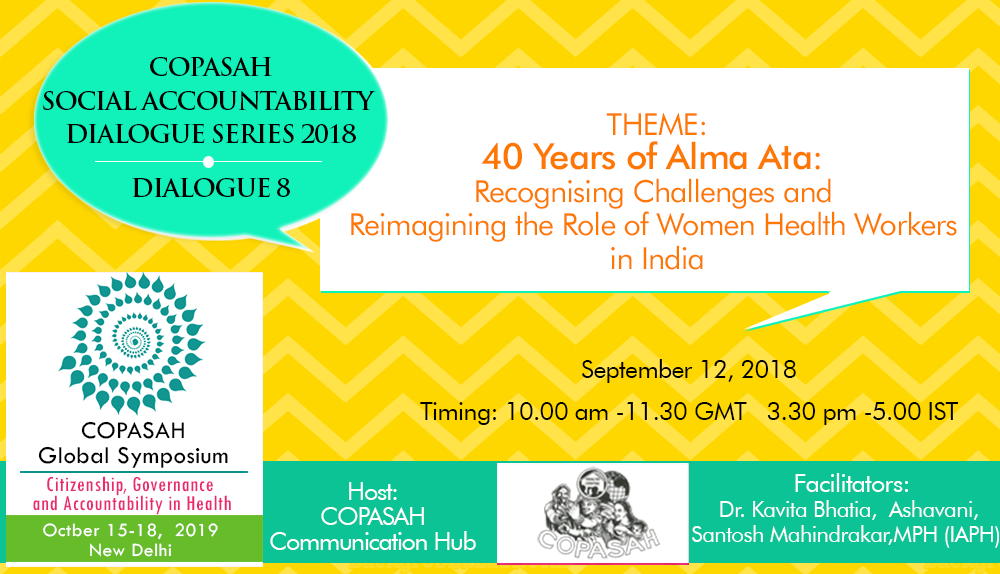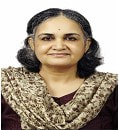
|
|
|
The Alma Ata Declaration that was signed on September 12, 1978 as a consensus document by almost all the nation-states constantly reverberates as the voice of the conscience for set right the pathways to health and wellbeing for all people. Among other things, it beckoned the nations to strengthen the health systems, and of them all, argued for the approach of primary health care to make it universally available, accessible, affordable and appropriate. Women health care workers have formed the backbone of the health system and health care provision in India. Such a mammoth health work force comprises of Community health workers (Traditional Birth Attendants, Accredited Social Health Activists - ASHAs, Anganwadi Workers - AWWs, Anganwadi helpers, and Midday Meal Workers), women in the health care system such as Auxiliary Nurse Midwife (ANM), nurses at various levels and thousands of women who work as allied health care workers. The neglect, apathy and the violations of the rights of women health workers in various forms has accompanied the progressive neglect and consequent decadence of the public health care system. The accountability to the dignity and rights of women health care workers has fallen in cracks both in the policy makers as well as in civil society. |
|
At the occasion of 40th year of Alma Ata, COPASAH Communication Hub is hosting the 8th COPASAH Social Accountability Dialogue (CoPSAD) with an aim to revisit the spirit of Alma Ata to discuss to recognize the contributions of women health workers and the challenges that they face in the current socio-political context of India’s health systems.
This dialogue will focus on (1) the situation of /Challenges of women health workers in India with a prime focus on frontline health workers. (2) Issues of women who form the overwhelming majority of the nursing workforce will be shared by women nurses. The voices from the community will enrich the discussions.
This dialogue will focus on (1) the situation of /Challenges of women health workers in India with a prime focus on frontline health workers. (2) Issues of women who form the overwhelming majority of the nursing workforce will be shared by women nurses. The voices from the community will enrich the discussions.
|
PRESENTER Kavita Bhatia has three decades of work experience in community health and gender, largely in research, documentation and mobilization. She has several publications including the book "People's Health in People's Hands" with late Dr. N.H. Antia to her credit. She completed her masters and PhD in Social Work from the Tata Institute of Social Sciences. She is based in India and is the owner and manager of an e-repositor, Ashavani (The voices of women health workers in India). |
|
PRESENTER
Santosh Mahendrakar is a nurse by profession, and has completed his post-graduation in community health nursing, and a Masters in Public Health (MPH). He is pursuing his doctoral study on the policy issues of human resource for health. He has been part of the national and international clinical and public health research projects. Since a decade, he has engaged himself in building a team of nurses to address larger public health issues, rights around the professional and working conditions of nurses. He is the founder member of Innovative Alliance for Public Health (IAPH), which is co-owned by several emerging leaders from the nursing profession. IAPH publishes Nursing Movements, a periodical newsletter articulating the issues of nurses and the nursing profession. (http://nursingmovements.com) |



